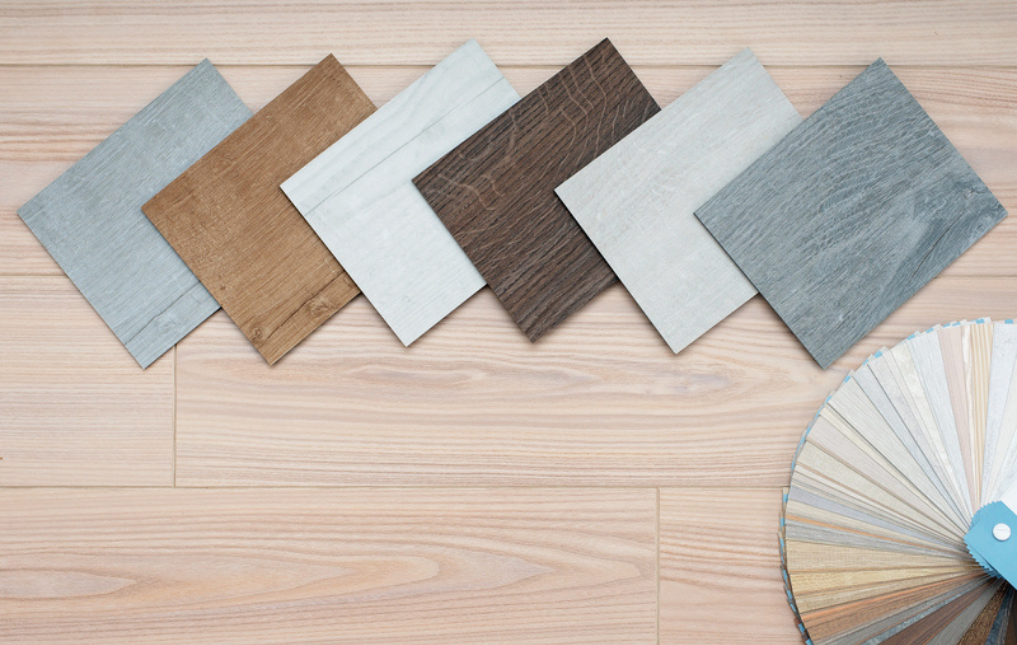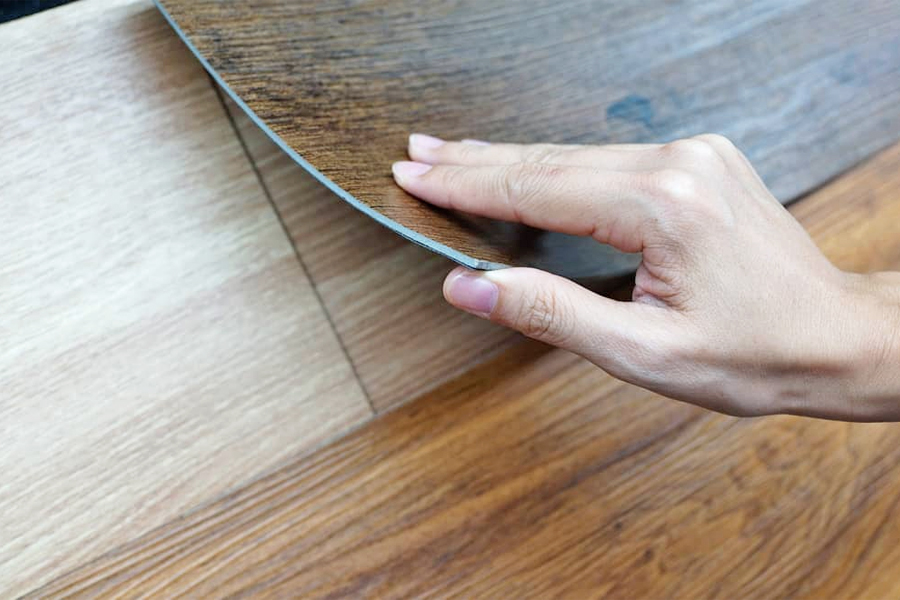The heart of any home is its flooring. It sets the tone, adds warmth, and creates an atmosphere that reflects your personal style. But with so many options available, choosing the right flooring can feel like an overwhelming task. Two popular contenders in the flooring world are engineered wood and luxury vinyl plank (LVP). Both offer elegant aesthetics and durability, but each has its own unique advantages and drawbacks.

Image: thehubrealty.com
So, how do you decide which flooring is right for your home? We’ll delve into the intricacies of each type, exploring their pros and cons, cost considerations, and maintenance requirements to help you make an informed choice.
An In-Depth Look at Engineered Wood Flooring
Engineered wood flooring has become a popular choice for homeowners seeking the classic beauty of hardwood with increased durability and stability. This type of flooring is constructed in layers, with a top layer of real wood veneer bonded to a plywood core. This layered structure provides strength and stability, making it less prone to warping, shrinking, or expanding than solid hardwood.
Advantages of Engineered Wood Flooring:
- Aesthetic Appeal: Engineered wood offers a wide range of wood species, colors, and finishes, allowing you to achieve the desired look for your home. It can mimic the appearance of solid hardwood, giving a sophisticated and timeless elegance.
- Durability: The layered construction of engineered wood makes it more robust than solid hardwood, better resistant to scratches, dents, and moisture.
- Stability: Engineered wood is less prone to warping and expansion than solid hardwood, making it suitable for areas with fluctuating humidity levels.
- Installation: Engineered wood can be installed over concrete or existing wood subfloors, making it a versatile option for various homes.
- Eco-Friendly: Some engineered wood flooring manufacturers use sustainable forestry practices, ensuring the wood is harvested responsibly.
Disadvantages of Engineered Wood Flooring:
- Cost: Engineered wood flooring can be more expensive than LVP, especially when considering high-quality, exotic wood species.
- Refinishing: While engineered wood can be refinished, the number of refinishing cycles is limited due to the thinner veneer layer.
- Water Sensitivity: While more resistant than solid hardwood, engineered wood is still susceptible to water damage, especially if not sealed properly.

Image: www.nextdayfloors.net
Exploring the World of Luxury Vinyl Plank
Luxury vinyl plank (LVP) has taken the flooring industry by storm. This rapidly growing category offers a blend of realism, resilience, and affordability. LVP is made from multiple layers of vinyl, with a top layer that features a realistic wood grain or stone pattern.
Advantages of Luxury Vinyl Plank:
- Affordability: LVP is generally more budget-friendly than engineered wood flooring, making it an attractive choice for homeowners on a tighter budget.
- Durability: LVP is extremely durable, resistant to scratches, dents, and even water damage. This makes it suitable for high-traffic areas and families with pets.
- Waterproof: LVP is completely waterproof, making it ideal for bathrooms, kitchens, and other areas prone to moisture.
- Easy Installation: LVP can be installed quickly and easily, often using a click-and-lock system, making it a DIY-friendly option.
- Variety: LVP is available in a wide variety of wood-look and stone-look styles, allowing you to achieve the desired aesthetic without the high cost of real materials.
Disadvantages of Luxury Vinyl Plank:
- Authenticity: While LVP mimics the look of wood or stone, it lacks the genuine warmth and organic texture of natural materials.
- Foot Traffic Noise: LVP can be noisier than engineered wood, especially in areas with high foot traffic.
- Sun Sensitivity: Some LVP floors may fade or discolor when exposed to direct sunlight for prolonged periods.
- Limited Refinishing: LVP cannot be refinished like engineered wood, meaning any damage will require replacing the plank.
Making the Right Choice for Your Home
Choosing between engineered wood and LVP requires a careful consideration of your individual needs, lifestyle, and budget. Ask yourself:
- What is your budget? LVP is generally more affordable than engineered wood.
- What is the desired aesthetic? Both have a variety of options but engineered wood offers a more authentic wood look.
- How much foot traffic will the flooring endure? LVP is more resistant to wear and tear.
- What is the desired level of durability and scratch resistance? LVP offers higher durability.
- What is the level of moisture exposure? LVP is waterproof.
- Are you comfortable with the potential noise? Engineered wood is quieter than LVP.
Engineered Wood Flooring Vs Luxury Vinyl Plank
Final Considerations
Both engineered wood and LVP offer their own unique advantages, and the right choice ultimately depends on your specific priorities. If you want the authentic look and feel of real wood, along with the warmth, beauty, and potential for refinishing, engineered wood may be the better choice. If you prioritize durability, water resistance, easy installation, and affordability, LVP emerges as the clear winner.
Remember, the final decision should be based on a careful consideration of your needs, style preferences, and budget. Consulting with a flooring professional can provide valuable insights and help you make an informed decision that will leave you happy with your new flooring for years to come.






